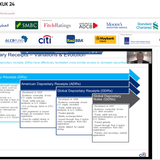On January 5, the Mexican Central Bank sold around US$1bn in New York and Mexico, a move that drove the peso up 1.2% in early New York trading. It later lost some of the gains, settling at MXN21.36 per USD, down from MXN21.45 on Wednesday, according to data from Reuters.
While the government kept the amount confidential, the currency commission said in a separate statement that the decision was aimed at boosting liquidity and combating recent peso volatility. It could not rule out further discretionary interventions to support the currency.
This is the second time in a year that the Central Bank dug into its reserves to support the peso. In February 2016, the Central Bank expended around US$2bn in a bid to stabilise the faltering currency.
According to analysts, poor performance of the Mexican peso has more to do with external pressures than with the Mexican economy itself.
On Thursday, hours after of the bank’s decision was made public, the peso suffered a minor setback when Trump called out Toyota on Twitter for producing cars south of the border.
“Toyota Motor said will build a new plant in Baja, Mexico, to build Corolla cars for U.S. NO WAY! Build plant in U.S. or pay big border tax,” the president-elect tweeted this week.
The peso, which lost 20% of its value in 2016, sank further on January 3 after automotive giant Ford announced it was canceling a plan to build a US$1.6bn plant in the central state of San Luίs de Potosί.
After Ford's announcement, the Latin currency, which became a proxy during the US elections for sentiment on Trump’s odds of winning the presidency, fell 0.93% to 20.93 per US dollar, its lowest level in seven weeks while Mexico's IPC stock index pared gains of over 1% to trade nearly flat at 45,75 points.
Last April, Ford unveiled plans to transfer the production of the Ford Focus from Michigan to a new plant in San Luis de Potosi with the intention of reducing costs. And while the company is still set to complete the transfer to Mexico, it would go to an already existing factory in Hermosillo, where no additional investment is required.
In the meantime, the company will expand its activities in Flat Rock, Michigan, where it intended to build electric and hybrid cars. This new business plan will save the company around US$500mn and create 700 jobs in the US between 2017 and 2018.
Game-Changer
According to Araceli Espinosa, an activist from Actinver, while this announcement is primarily business-focused, the timing cannot be ignored and can be seen as a sign of support for Trump.
“The rules of the game are changing. Companies like Ford and General Motors will have to start investing more in the US,” Espinosa suggested.
During a press conference in Flat Rock, Ford´s CEO Mark Fields admitted to Trump's influence on the decision. He called the move "a vote of confidence" in the real estate mogul’s business-friendly policies, while emphasizing at the same time, that this decision was ultimately a response to a decline in North American demand for small cars, like those that would have been made at the Mexican plant.
He added that Ford would have made the same decision even if Trump had not been elected.
For Espinosa, Trump’s protectionist agenda combined with currency speculation will have a short-term negative impact on Mexico’s markets and could hurt the country’s economic growth.
The threat could be more significant if Trump scraps the North America Free Trade Agreement (NAFTA), which he promised to do during his campaign.
“Many manufacturers along with small and medium enterprises will need to reinvent themselves and change their strategies if they want to survive Trump,” said, Espinosa.
Regardless of this, she is a bit more optimistic about the long-term effects of Trumps policies:
“Even if Trump drives the US out of NAFTA, the tariffs between OECD countries are not excessively high” she noted, adding that the biggest companies in Mexico like Cemex and Bimbo, among others, have invested interest in the US, so they should not suffer any negative impact.









